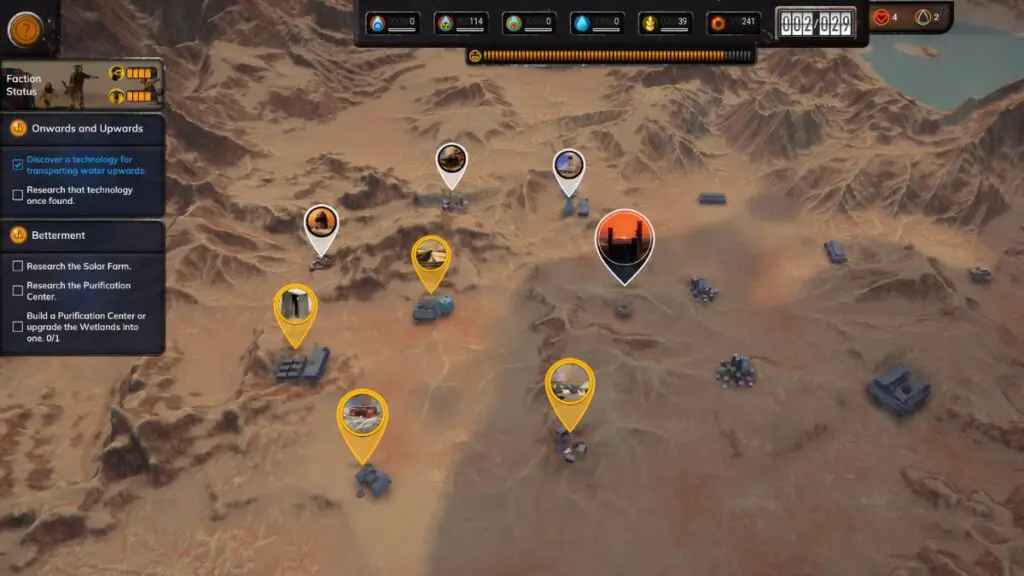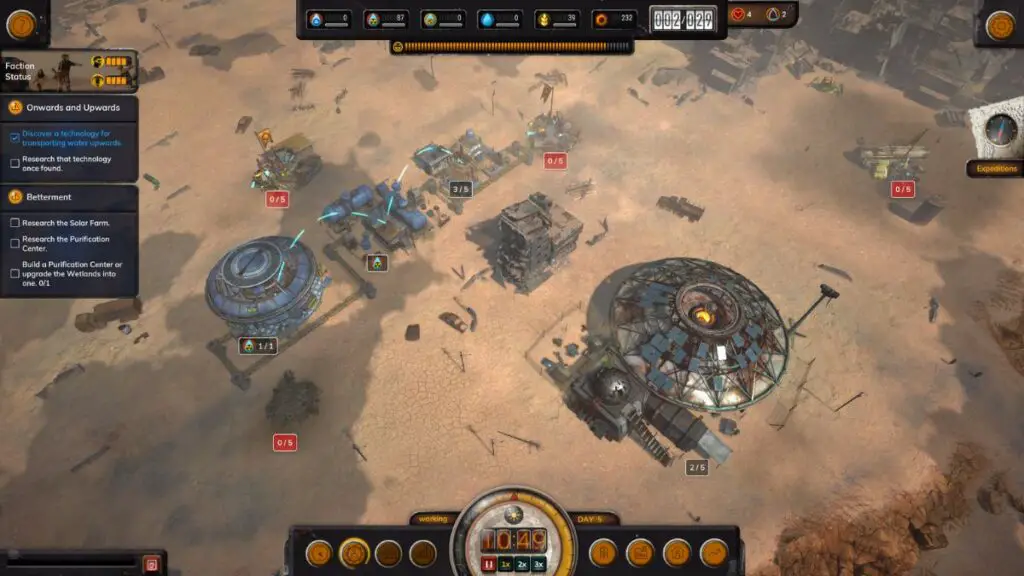Though real-time strategy (RTS) games are a constant fave for Galaxy brain gamers, the genre deserves more widespread appreciation for its breadth of options. RTS isn’t just Starcraft and Age of Empires, after all. If you’re seeking a unique and engaging strategic adventure that offers a fascinating wasteland world, tests your planning skills, and puts survival-altering decisions in your hands, look no further than HomeSeek.
Opening up with serious Fallout vibes, your band of survivors comes from a post-apocalyptic bunker with the goal of finding a way to survive in the sparse wasteland. From organizing resources to coordinating raiding parties, HomeSeek lets you explore what it’s like to try to keep a community going when nature is against you. But this engaging, strategic survivalist adventure does lack a bit of a human element to take it from good to great.
Accessible and addictive survival

From the get-go, HomeSeek is quickly addictive and enjoyable. Once you load into the first region and begin building your community, the game gives you an easy-to-follow prompt tutorial that gets you started on raising structures, assigning jobs, and collecting resources. The learning curve may be a bit harder for people who have never played an RTS game before, but the controls and goals are accessible and easy to understand. Then, once you get going, you’re effortlessly immersed in managing your food storage, research, and constant search for a better place to live.
The game is also quite gracious when you face danger, giving you a few more options before letting your community suffer for your mistakes. For example, while my water resources did deplete at one point, my community survived a couple more days until a fortuitous rain replenished my supply. Was I simply lucky? Possibly. However, it did seem that whenever I made a misstep, the game made it possible to turn the crisis around. That’s great for new players jumping into the waters, or players just trying to improve their efficiency and get the best scores possible. But for the truly hardcore, it does take some of the satisfaction out of surviving through suffering. If you’re a player who prefers the thrill of extremely high stakes, you should probably play on the hardest difficulty.
Prompted for success or failure?
Meanwhile, crises like the water shortage led to another problem I recognized with the game: explaining its limited resources. The game makes every other prompt very large and accessible, but displaying how much of each resource exists in each resource pile seemed to miss that memo. I knew I should keep an eye on my resources, but I didn’t realize that the blue bar in the center designated my allotted amount of that resource nor did I realize it was getting low until it was too late. Any players new to resource management could probably use more prompting on how much of each resource they have, how to keep an eye on them, and when they might run out.
Similarly, while it’s not necessary for the game to do this, putting more emphasis on the expeditions would help new players understand that, without doing expeditions consistently/constantly, you’re far more likely to run out of resources before you get to the next area. I was slow to get my expeditions started and it led to a very mediocre “game score” once I left the valley. However, once I got going with expeditions and understood their gravity, they became a blast of adventure prompts, facing wasteland survival struggles of bandits, mysterious objects, fellow survivors, and more. Expeditions quickly became one of my favorite parts of playing the game.
If You Love Trying Out New Indie Games: Volcano Princess First Impressions: Setting Your Kid Up for Success
Survivors as a resource

Those engaging survival prompts do lead me to HomeSeek’s biggest flaw, though. While most of the other complaints are mild accessibility concerns about getting players adjusted to the game, HomeSeek’s major disappointment is the survivors themselves. Or, at least, how it treats your relationship with them. HomeSeek does very little to encourage you to care about the survivors. While it is a survival game, the entire time I played it was easy to see the survivors as a resource, not as people. Nothing compelled me to choose safer options for them on expeditions or help protect them from illness or medical attention — nothing except the risk of losing a useful worker.
It dulls the stakes of the game if I don’t care about the survivors. I didn’t even know the names of the dozen people that died during my playthrough. A few more hopeful random pop-ups — akin to your other decision prompts — could’ve made a world of difference. Weddings, children, community bonding. Chronicling your group’s successes more would add a level of investment in these survivors that made the thrill, anxiety, and tension of the game all the more effective and elevated HomeSeek to the next level.
HomeSeek or head home?
HomeSeek is a blast that I would recommend to any strategy lovers who want a bit more survival than murder from their RTS. However, if you expect to feel connected to your survivors, this game doesn’t do that. They’re little more than a resource number. HomeSeek cares more about the group’s survival. If you struggle to feel compelled by that, it’ll be less engaging than it could be. It’s still a darn good game, though.
Anyone craving a Fallout-skinned RTS, pick up HomeSeek.
The Homeseek Demo was played on the PC with a code provided by Traptics. It is available on Steam July 20.






